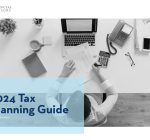Demystifying Real Estate Accounting: Unlocking Financial Success in Property Ventures
Introduction
In the realm of real estate accounting, success lies not only in acquiring and managing properties but also in maintaining a solid financial foundation. Real estate accounting plays a pivotal role in ensuring accurate financial records, informed decision-making, and long-term profitability. This article aims to shed light on the world of real estate accounting, highlighting its significance, key principles, and best practices for navigating the complex financial landscape of property ventures.
The Significance of Real Estate Accounting
Real estate accounting serves as the financial backbone of any property venture. It involves the systematic recording, analysis, and reporting of financial transactions and assets related to real estate holdings. Accurate accounting practices enable investors, property owners, and real estate professionals to gauge the financial health of their portfolios, make informed investment decisions, and comply with legal and regulatory requirements.
Key Principles of Real Estate Accounting
Accrual Accounting: Property management accounting typically follows the accrual basis, recognizing revenue and expenses when they are incurred, regardless of when cash exchanges hands. This principle allows for a more accurate representation of the financial position and performance of real estate assets over time.
Revenue Recognition: Properly recognizing revenue in real estate accounting is crucial. Revenue from property rentals, lease agreements, and sales transactions must be accurately recorded based on the terms of the contracts, including any rental income, lease incentives, or deferred revenue.
Cost Capitalization: Real estate investments often involve significant costs such as property acquisition, development, and improvements. These costs must be appropriately capitalized and amortized over the useful life of the asset to accurately reflect its value and distribute expenses over time.
Depreciation and Amortization: As real estate assets age, their value depreciates. Depreciation is the systematic allocation of the asset’s cost over its estimated useful life. Similarly, amortization applies to intangible assets like leasehold improvements or financing costs.
Lease Accounting: With the introduction of new lease accounting standards, such as ASC 842 and IFRS 16, proper accounting for lease agreements has become even more critical. These standards require lessees to recognize lease assets and liabilities on the balance sheet, impacting financial ratios and disclosure requirements.
Best Practices in Real Estate Accounting
Robust Recordkeeping: Implementing a comprehensive recordkeeping system is essential for accurate financial reporting. Maintain organized documentation of leases, contracts, property-related expenses, and financial statements for easy reference and audit purposes.
Software and Automation: Leverage specialized real estate accounting software to streamline processes, enhance accuracy, and automate repetitive tasks. These tools often provide features like lease management, rent collection, expense tracking, and financial analysis capabilities.
Tax Planning and Compliance: Stay abreast of tax regulations specific to real estate investments, including deductions, depreciation schedules, and tax credits. Seek professional guidance to optimize tax planning and ensure compliance with relevant laws and regulations.
Regular Financial Analysis: Conduct regular financial analysis to assess the performance and profitability of your real estate investments. Monitor key metrics such as net operating income (NOI), cash flow, return on investment (ROI), and occupancy rates to identify areas for improvement and make informed decisions.
Engage Expertise: Consider partnering with experienced real estate accountants or financial advisors who specialize in the intricacies of real estate accounting. Their expertise can help navigate complex transactions, ensure compliance, and maximize financial success.
In Conclusion
In Conclusion, real estate accounting serves as the financial compass in the world of property ventures. By adhering to key principles and best practices, investors, property owners, and real estate professionals can gain valuable insights into the financial performance of their holdings. Accurate and transparent accounting practices enable informed decision-making, enhance profitability, and ensure compliance with legal and regulatory obligations. By embracing the importance of real estate accounting. Stakeholders can unlock financial success and thrive in the dynamic landscape of real estate investments.





